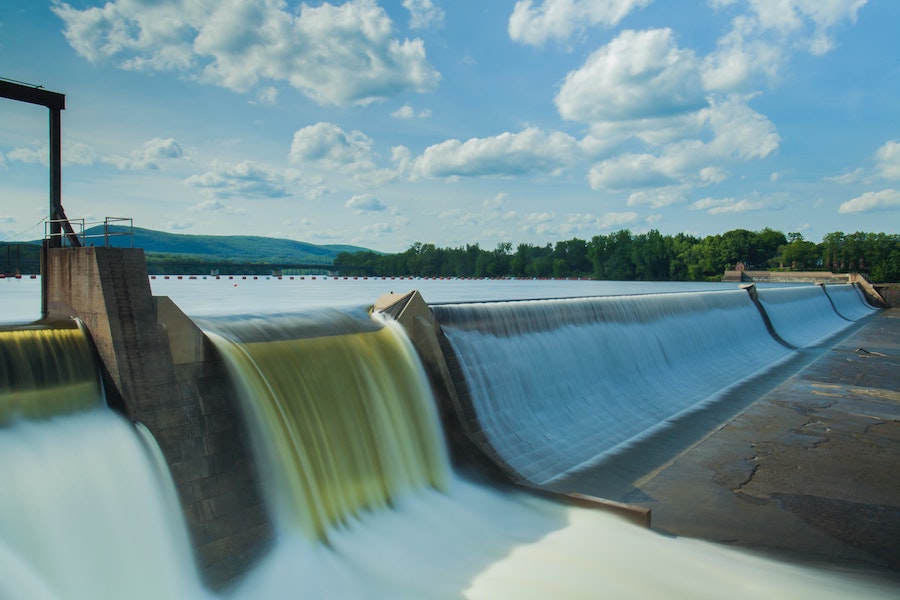Decarbon Daily - The Water & Energy Nexus
Inside this issue
Water Requirements and Sources of Energy
Significant quantities of water are usually required during the life cycle of energy production. Water is consumed at several stages of energy production for processes like extraction of raw materials, spinning turbines, cooling during thermal processes, industrial cleaning, and irrigation. Some studies report that around 52 billion cubic meters or 13 trillion gallons of freshwater are consumed each year to satisfy global energy production.

Source: American Power Association, Holyoke Plant
It is important to understand the linkages between energy and water at the global and regional levels since different methods of energy production have unique water requirements. Here is a quick overview of some of the key water uses in energy production:
Power plants abstract surface water and use it for cooling through one of three main methods of cooling technologies: wet-tower cooling, once-through cooling or dry-through cooling. Each method has cost implications, impact on water supply and the ratio of withdrawal and consumption.
Oil and gas consume close to 30% of all the water required for energy. Hydraulic fracturing entails pumping fresh water or recycled water along with chemical additives into the horizontal laterals to produce shale.
Solar PV and Concentrated Solar Power (CSP) require very little water for each unit of electricity they generate. During project construction, however, water is required. Some water is also used in the raw material extraction and fabrication of the collector.
Hydroelectricity is a very water-intensive source of energy. However, most of the water used in hydro is returned to the source after use. It may be argued that some of the water used in hydropower generation is lost through evaporation.
Mining requires water to extract rare earth minerals for batteries, blades, and many other energy-related products.
Water use and energy production are intertwined.
Economic growth in the developing nations leads to increased energy requirements, which in turn intensifies stress points in water consumption. This stress is felt in some regions more than others.
Developing nations are caught between tackling water security issues and trying to drive their industrialization agenda, all while minding the UN's SDG 6 (access to water) and SDG 7 (clean and affordable energy for all). There are serious concerns regarding the water security issues and their relation to the sustainable development of energy solutions.
The Water-Energy Nexus
To tackle these concerns, the international community, investors, and governments continue to implement policies and regulations that promote sustainable water use in energy production. The Sustainable Water and Energy Solutions Network is an example of a platform for stakeholders to bring solutions on board. The Network brings partner organizations, including UN-Habitat, UNFCCC, and the World Energy Council for a more collaborative approach in providing energy solutions. Another initiative is the “Thirsty Energy” by the World Bank that aims to address challenges related to the water-energy nexus in selected countries.
Several solutions have been suggested across the world for the scarcity issue. However, the fact remains that renewable energies are gentler on water resources. Conventional energies such as fossil fuels require significant quantities of water during production, plant construction and life-cycle operation. In contrast, renewable energy solutions like solar photovoltaic and wind energy have significantly lower demand for water in setting up and operation.
A comparison between withdrawal and consumption of water for energy should be the basis of the development of energy solutions.
Inside this Issue
🏢 Game Changing Air Conditioning Startup Wins Startup Competition at VERGE 21
🤑 Bitcoin Miner Acquires Washington Hydro Plant
🛰 Planet Acquires VanderSat
♻️ ENGIE and Partner Acquire Spanish Independent Renewable Power Producer
Articles in this issue